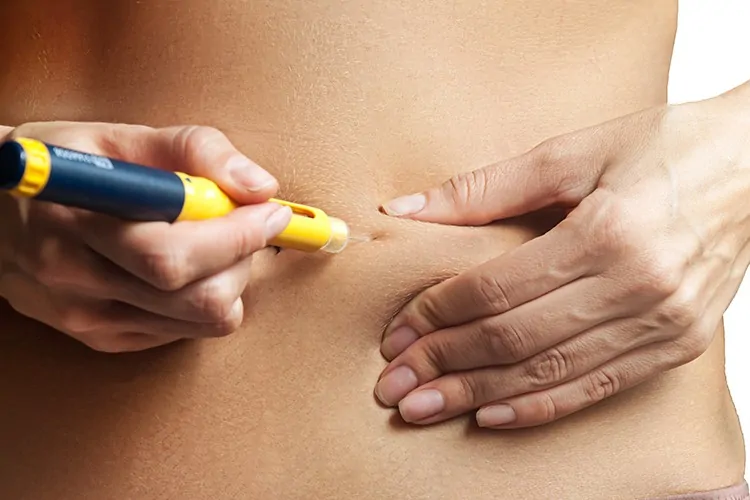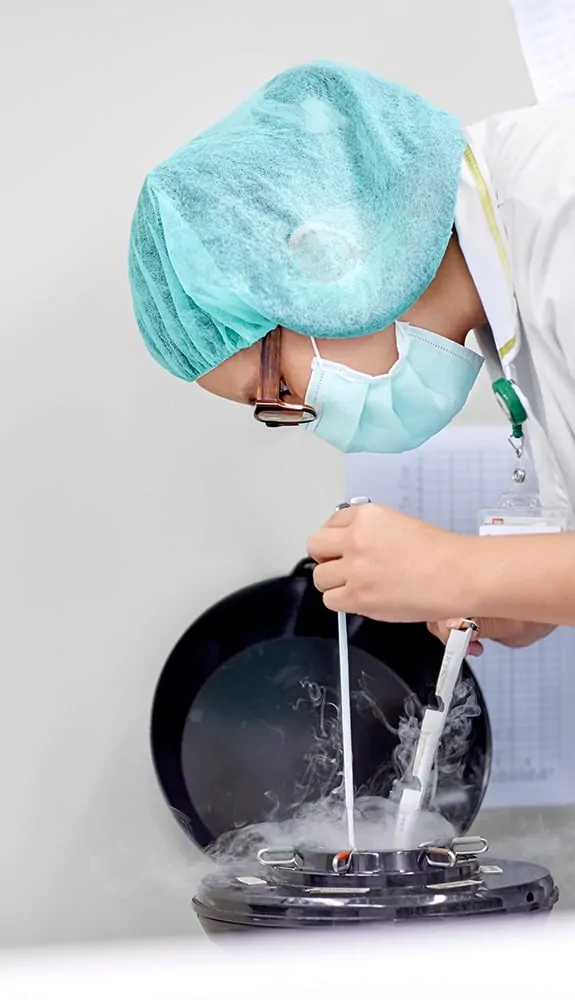Freezing eggs and embryos is a well-established procedure that has been carried out for many years; the first baby was born from a frozen embryo in 1984 and millions of healthy babies have been born worldwide. The technology is being used more and more; not only by those undergoing fertility treatment but by those wanting to preserve their fertility, for example, when fertility may be affected by medical treatment. Recent figures have shown that frozen embryos are just as likely to result in a baby as fresh embryos.
Why women freeze their eggs
Egg freezing provides opportunities to women not only facing medical treatment but to those who wish to store eggs for social reasons. This may because a woman wants to delay when she wishes to start her family. Fertility declines especially over the age of 37 in women so freezing eggs at a younger age when they are of good quality may improve a woman’s chance of having baby when older. Embryo freezing can also be used to preserve fertility but more frequently it is used during fertility treatments when spare embryos can be frozen for a patient to use in the future.
The egg freezing process
The process involves using in vitro fertilisation (IVF). This is where a woman is given fertility hormones, so the ovaries produce more eggs than usual in a menstrual cycle. These eggs are collected during an outpatient appointment in a licensed IVF clinic. The eggs are looked after by embryologists in a specially designated laboratory.


The difference in freezing eggs or embryos
In egg freezing, the eggs are frozen on the same day they are collected. Embryos are frozen several days later. The eggs and sperm are placed together on the day the eggs are collected. The following day, they are checked to see if they have fertilised. Once fertilised the embryos are left to develop for a few days in incubators. The embryologists check the quality of them and select good quality embryos to freeze. This is usually on day 5 of development when the embryo is called a blastocyst.
Eggs are frozen in liquid nitrogen
Freezing eggs and embryos is more complex than freezing food! The process involves placing the eggs and embryos in special fluids which help protect the cells. These are called cryoprotectants. The cryoprotectants draw water out of the cells which prevent ice crystals from causing damage. Once the eggs and embryos have been exposed to these, they are very rapidly cooled by a process called vitrification. This involves placing the eggs and embryos on a small straw like device and using liquid nitrogen to supercool the cells. Liquid nitrogen is extremely cold (-196oC). Once the cells are frozen, they are then placed in dewars (tanks) containing liquid nitrogen. Once in storage, the eggs and embryos are safe, and the quality is not affected.
Up to 90 % of the eggs survive thawing
The process of cryopreservation is complicated and requires skilled embryologists. Improvements in the methods used now means that the majority of eggs and embryos survive the freezing and thawing process; most centres usually quote above 90% survival after thawing. The chance of achieving a pregnancy and live birth using frozen eggs and embryos varies and is dependent on various factors such as the women’s age at the time of freezing and how many are placed in storage. The Human Fertilisation and Embryology Authority (HFEA’s) website (in the UK) is a good resource to look at regarding success rates. Other countries have similar reporting agencies.
If you have further questions about egg or embryo freezing please speak to a fertility specialist. Counseling is also useful especially when considering social egg freezing as storing eggs does not guarantee that a baby will be born in the future.
You can read more about freezing and storage of sperm and egg cells here.
For Those in the UK:
Both egg and embryo freezing and storage is regulated by the Human Fertilisation and Embryology Authority (HFEA) and anyone wishing to have their eggs or embryos frozen must complete specialised consent forms which detail the number of years to store, clear instructions to what the eggs and embryos can be used for and what should happen to them if the person storing them dies or becomes mentally incapacitated. Patients are also required to be screened for viral infections (HIV, Hepatitis B and Hepatitis C) before the eggs/embryos are stored. In theory, they can be stored for many years but laws in the UK restrict this to 10 years initially. In certain circumstances the storage can be extended up to 55 years but there has to be a medical fertility reason for doing this. Eggs frozen for social reasons can therefore only be stored for up to 10 years.



